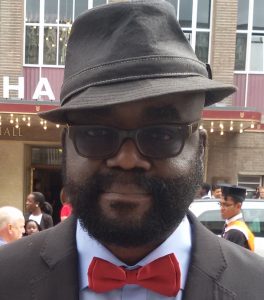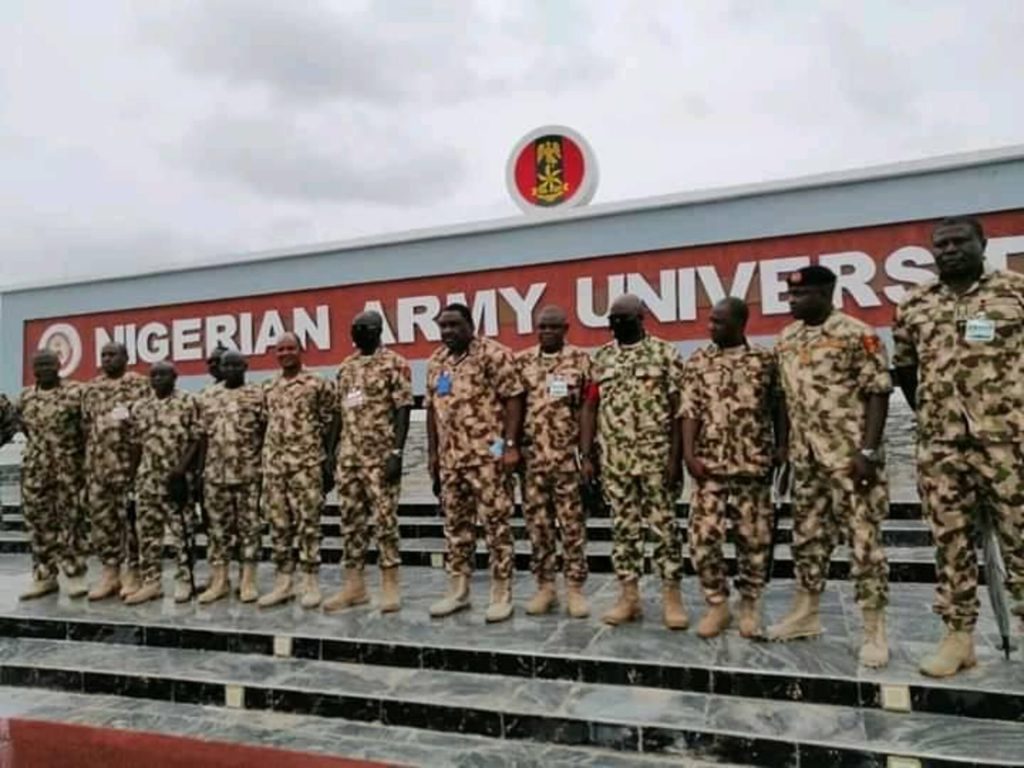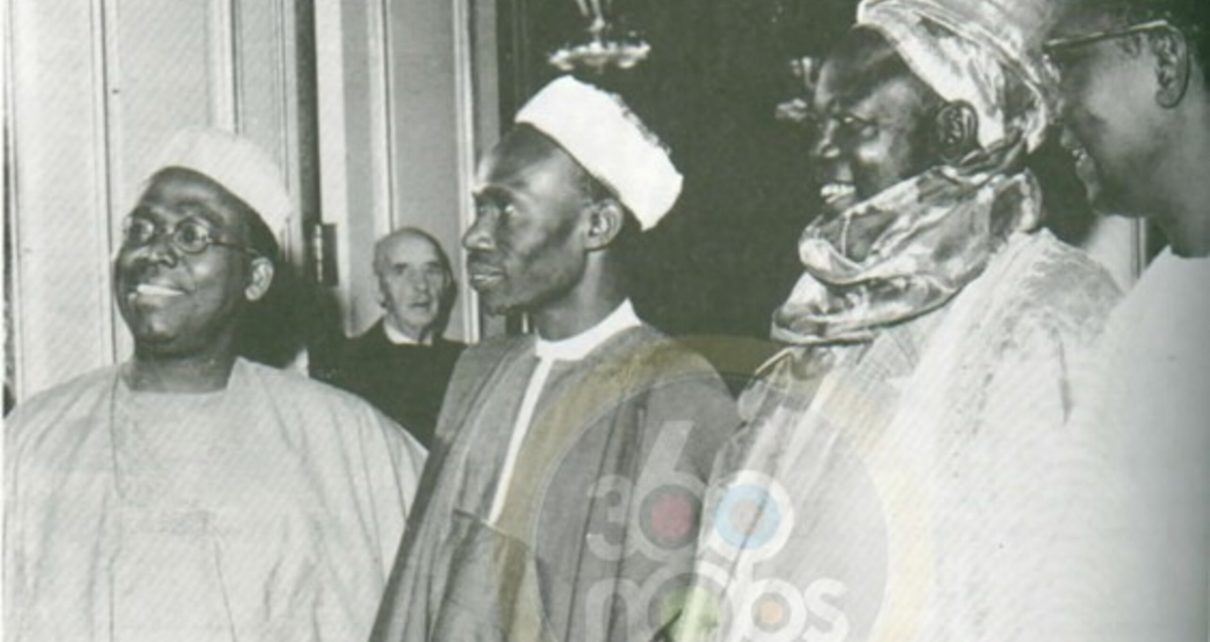
wole.olaoye@gmail.com
He who thinks he is leading and has no one following him is only taking a walk, say the elders. That is because he who walks alone is both in front and behind. In Nigeria, we used to have leaders worthy of the name, not because they were perfect beings but because their strengths outshone their weaknesses. Great leaders have some things in common: vision, strength of character, honesty, humility, personal pride and passion for the common good.
There is a valid reason why Nigerians still look back with nostalgia at the imperfect place we were coming from in the First Republic. Things were not perfect, but we did have leaders. And so much progress was made with the comparatively paltry funds available notwithstanding the few cases of graft. The direction of our collective morality has gone so far south that what was considered as corruption in 1960 is treated as great personal sacrifice today.
The names of Tafawa Balewa, Obafemi Awolowo, Ahmadu Bello, Nnamdi Azikiwe, Michael Okpara continue to resonate even with the millennial generation because those leaders confronted the major challenges of their time and uplifted their people. Selflessness had meaning in their time. Nepotism was yet to cut its milk teeth.
When Awolowo decided to establish the University of Ife, he did not site it in Ikenne, his birthplace. Who could have challenge him if he did? He went into Yoruba history and folklore and decided that the fitting host was Ile-Ife, the cradle of the Yoruba race (the institution was posthumously named after him).
His government embarked on the establishment of massive farm settlements all over the Western Region, many of them tied to cottage industries. He built the Liberty Stadium at Ibadan, rivalling the UK’s Wembley. His government honoured the labour of cocoa farmers by naming the first skyscraper in the region “Cocoa House”. He established the Western Nigerian Television Service, first in Africa. Industrial estates were built in Isolo, Ilupeju, Ikeja and many other parts of the West. None of these were sited in Ikenne.
Nnamdi Azikiwe had conceived the idea of the University of Nigeria in 1955. The university was formally opened in 1960; location: Nsukka, not Onitsha, Zik’s birthplace. Major government establishments were concentrated in Enugu, the regional capital while Onitsha remained what it had always been — a commercial hub.
Azikiwe had earned his epaulets as a nationalist of no mean repute. In 1936, he was charged with sedition for his article published in the African Morning Post in which he said, inter alia: “Personally, I believe the European has a god in whom he believes and whom he is representing in his churches all over Africa. He believes in the god whose name is spelt Deceit. He believes in the god whose law is “Ye strong, you must weaken the weak”. Ye “civilised” Europeans, you must “civilise” the “barbarous” Africans with machine guns…” Today, the Nnamdi Azikiwe International Airport bears his name; so do many institutions and city highways. He didn’t have to resort to self-immortalisation.
Michael Okpara who succeeded Zik believed that Nigeria’s salvation depended on a revolution in agriculture. He encouraged the establishment of farm settlements all over the Eastern Region. He also championed the educational and infrastructural development of the area. In all these years he
did not have a house of his own until after the civil war when his close associates built him a house in his village, Umuegwu. The Michael Okpara Way in Abuja is named after him, as is the Michael Okpara University of Agriculture in Umudike, Okpara Square in Enugu; There are two statues of him in Enugu and Umuahia.
If Ahmadu Ibrahim Bello, the Sardauna of Sokoto and Premier of Northern Nigeria, was like today’s political leaders, the Ahmadu Bello University, Zaria, would have been sited in Rabah, his birthplace. He dominated his environment. He could have got away with siting most major government establishments in the Sokoto area, but he did not. He knew that History had the most enduring garlands.
Various institutions created under Bello included the Northern Nigeria Development Corporation (NNDC), Bank of the North and Northern Nigeria Investments Ltd (NNIL). NNDC was a holding company with capital sourced from the region’s marketing board while NNIL was a partnership between the Commonwealth Development Corporation and NNDC.
He was not nepotistic on the regional level. Thus, a Sunday Awoniyi from Mopa had a chance to shine like other lieutenants from the far North. Although he had his problems with indigenous peoples in Hausaland and the Middle Belt, Bello spread development to all parts of the North, telling his people to be bold and strong in facing challenges: “We are not facing any living enemies, who wish to harm us or who wish to weaken us”, he declared, “The only possible enemies to the people of the Northern Region are two: Ignorance and Fear. Ignorance produces Fear. Therefore if we kill Ignorance, we kill Fear.”
How many Nigerian politicians have such inspiring exhortation for their people today?

Standards have fallen! A man who would not qualify to dust the sandals of a local councillor in the First Republic now holds court as state governor, complete with outlandish unauditable security votes and immunity from prosecution while in office. The leftover chaff of yesteryear has become, not just the main dish, but a delicacy in this era of retrogression. It used to be said that a bird that flies off the earth and lands on an anthill is still on the ground. Now we are told that the anthill is the destination and that the sky is for the gods and those who can bribe their way to reach them.
Now, from top to bottom, power is about unbridled nepotism and self-immortalisation. From the president to the local government councillor, it’s all about self. The First Republic style of dispassionate decisions taken in the larger interest of the greater majority, is now old school. Thus, a railway line is being extended from Daura in Katsina State to Maradi in Niger Republic. We are naked here, but we are clothing our neighbour.
Meanwhile the busiest international highway between Nigeria and Benin Republic is a yawning death-trap and the Lagos State government is engaged in a long struggle to build a railway along that axis for many years. Because of our retrogression, a query of the railway line from Daura, President Buhari’s hometown, to a foreign country is readily answered with another one — “Where were you when a federal university was donated to President Jonathan’s village, Otuoke? If Jonathan could do it, why not Buhari?”
The same stock response serves when you wonder why a university of transportation is being established in the president’s hometown. All these things are being funded with foreign loans from China whose details did not go through the scrutiny of the national assembly. Opacity is the middle name of the deal.
In the same nepotistic spirit, the former Chief of Army Staff, Lt Gen Tukur Buratai, and the former Chief of Air Staff, Air Marshal Sadique Abubakar, located the Nigerian Army University and Nigerian Air Force University in their respective hometowns of Biu, Borno State, where Buratai hails from, and Bauchi from where Abubakar hails. Buratai also commissioned an Institute of War and Peace, NOT in Abagana, Umuahia, Uli or any of the theatres of the Nigerian civil war, but in his native Buratai town. The institute, which is an off-campus section of the Nigerian Army University, is named after him. Self immortalisation has no better definition.
Anyone with half a brain can wonder: which is more urgent — deploying resources to acquiring armaments and training the troops in existing facilities, or establishing new military universities? Standards have fallen! We now have soldiers in politics and politicians in uniform.
State governors are in the same game of nepotism. So are local government chairmen and heads of parastatals. No one sees anything wrong in a state governor naming a road built with public funds after his miserable self. We are in an era of anything goes.
Turn in any direction, the First Republic was better than the Second which was better than the Third which in turn was better than the Fourth. Bye-bye selflessness. Goodnight altruism. The new vogue: To thy tents, O Israel! The consolation is that the leaders of yore had something positive by which we remember them.
They don’t make them like that anymore!
- Wole Olaoye is a public relations practitioner and a public affairs commentator and can be reached at wole.olaoye@gmail.com



